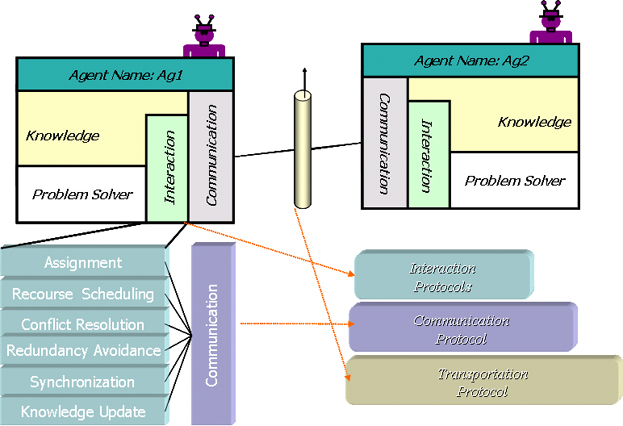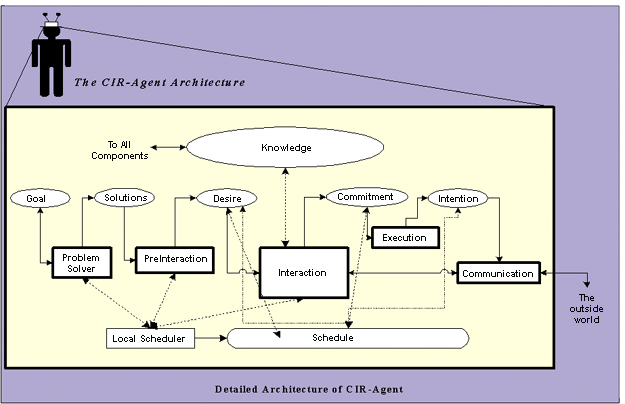|
|
The
CIR-Agent
Agent-Orientation provides the
next generation in the evolution of computational modeling,
programming methodologies, and software engineering
paradigms. We view "agent" as a metaphorical
conceptualization tool at a high level of abstraction
(knowledge level) that captures, supports, and implements
features that are useful for distributed computation in open
environments. It is
a level of abstraction to construct computational systems
(agents) that inherent the agenthood features.
As an artifact, an agent can be described as an individual collection of
primitive components that provide a focused and cohesive set of
capabilities. The diagram below depicts the
Coordinated, Intelligent Rational, Agent
(CIR-agent) model. The basic components include,
problem-solver, interaction devices, and communication, as shown in the CIR-Agent
Model below.
A particular arrangement (or interconnection) of the agent's
components is required to constitute an agent, as shown in The CIR-Agent
architecture. This arrangement reflects the pattern of
the agent's mental state as related to its reasoning to
achieve a goal.
However, no specific assumption is made on the detailed
design of the agent components. Therefore, the internal
structure of the components can be designed and
implemented using object oriented or any other
technology, provided that its conceptualization is
consistent with
the specified architecture of the CIR-Agent model.
The CIR-Agent, in particular, provides engineers with
advanced features at a higher level of abstraction that
are useful for CDS environments. It supports flexibility
at different levels of the design: system architecture,
agent architecture, and agent component architecture.
These degrees of flexibility allow CDS to adapt to
changes with minimum requirements for redesign. Based on
this view, an agent within the context of CDS, might
play roles as described by the functionality of its
problem-solver
component and able to coordinate, cooperatively or
competitively, with the other agents including human
beings.
The CIR-Agent Logical Architecture

The
CIR-Agent Detailed Architecture

|


